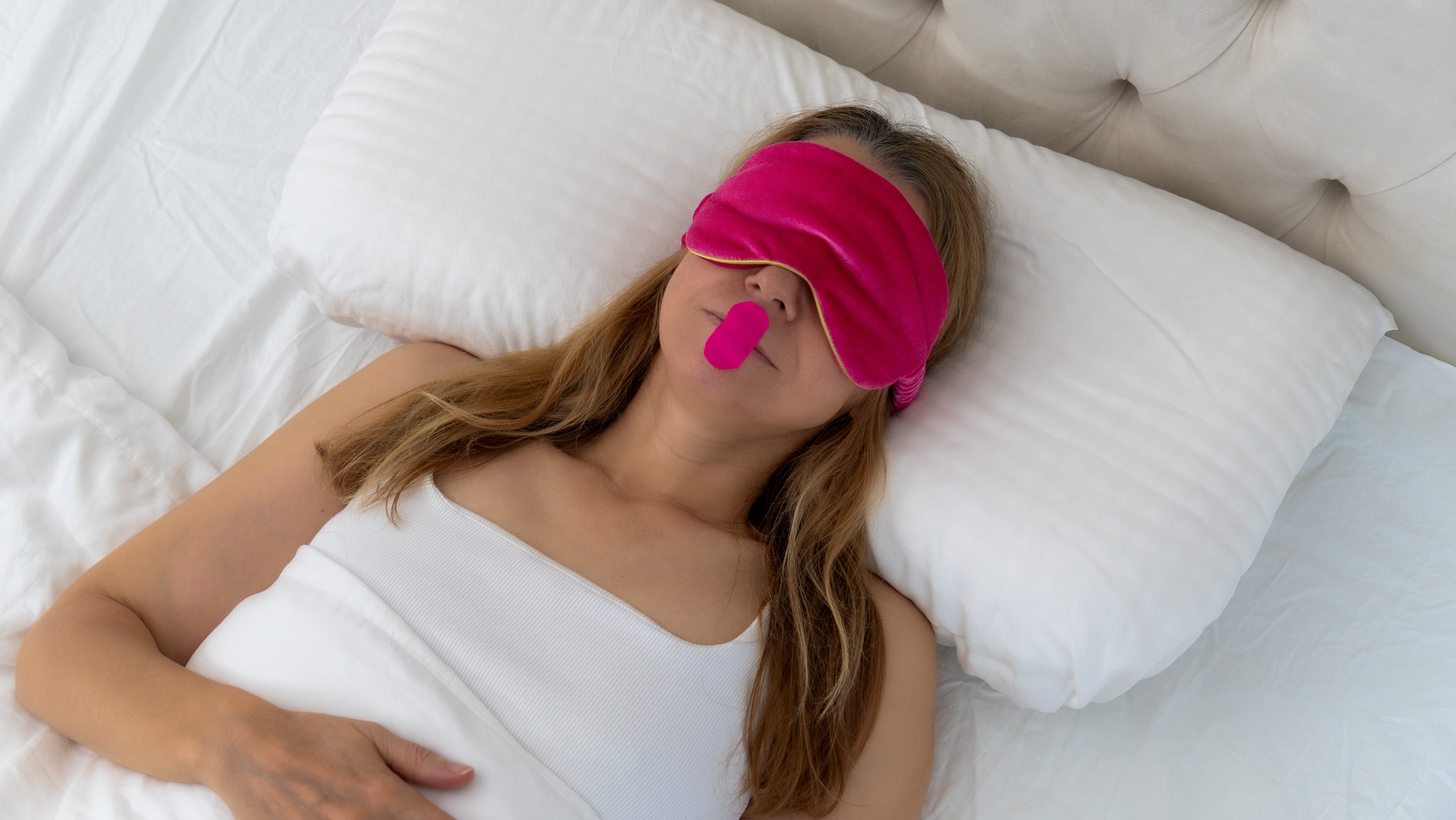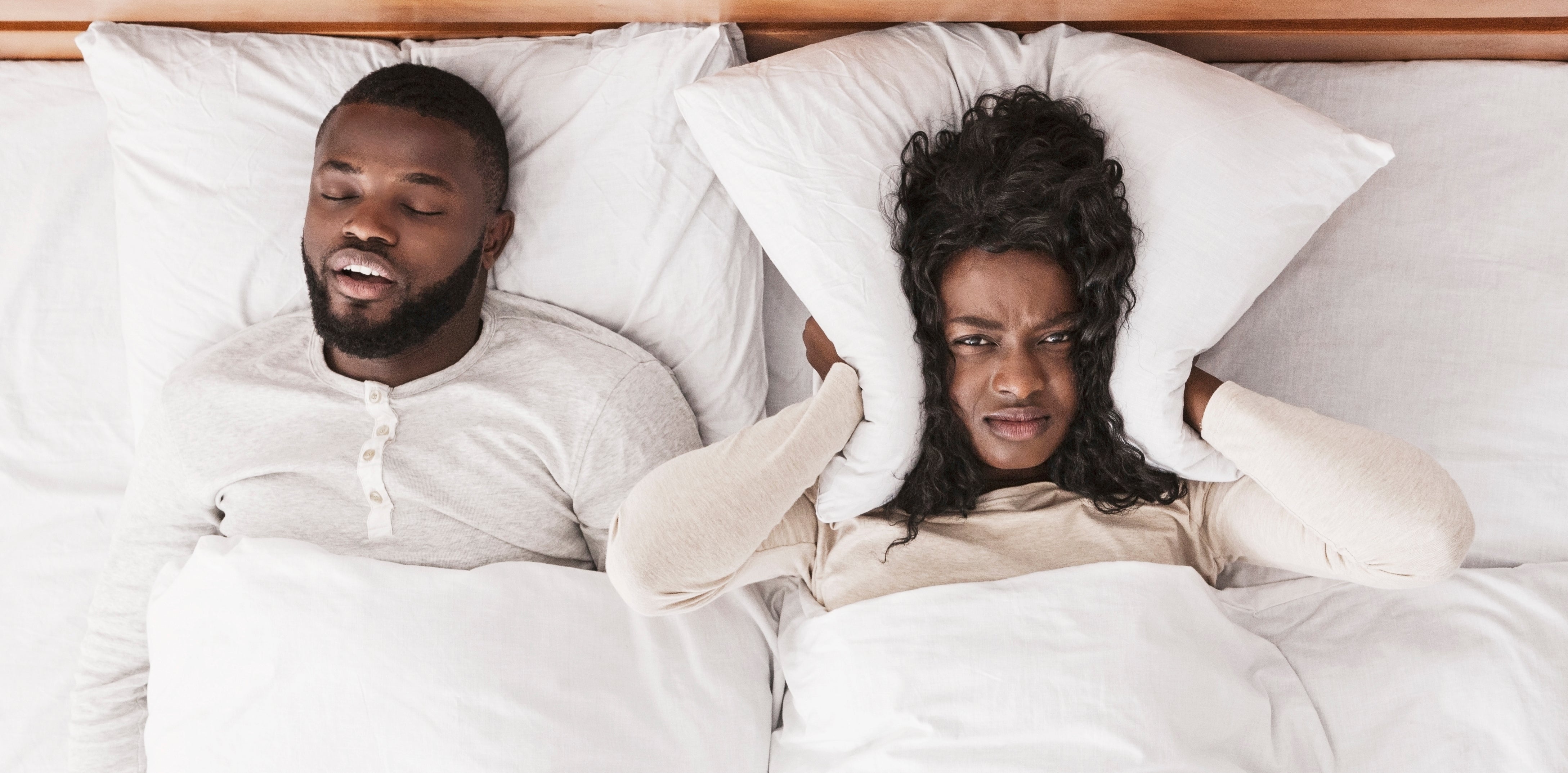The Independent's journalism is supported by our readers. When you purchase through links on our site, we may earn commission.
Why everyone’s obsessed with this new bedtime routine, and the truth about its health effects
As the trend of taping one’s lips closed at night goes viral, Inga Parkel speaks to experts about whether the practice actually has any aesthetic benefits – or if it’s yet another online sensation best to brush off


Your support helps us to tell the story
From reproductive rights to climate change to Big Tech, The Independent is on the ground when the story is developing. Whether it's investigating the financials of Elon Musk's pro-Trump PAC or producing our latest documentary, 'The A Word', which shines a light on the American women fighting for reproductive rights, we know how important it is to parse out the facts from the messaging.
At such a critical moment in US history, we need reporters on the ground. Your donation allows us to keep sending journalists to speak to both sides of the story.
The Independent is trusted by Americans across the entire political spectrum. And unlike many other quality news outlets, we choose not to lock Americans out of our reporting and analysis with paywalls. We believe quality journalism should be available to everyone, paid for by those who can afford it.
Your support makes all the difference.If I told you I was planning to tape my mouth shut at night, you’d have questions. “Why?” would likely be the first. Am I practising my own kidnapping? Or perhaps prepping for the next instalment of A Quiet Place? As cool as that last scenario would be, neither is true. Mouth-taping is, in fact, one of the latest trends to go viral on TikTok, whereby people literally fasten their lips with adhesive before going to sleep.
I won’t lie and say my interest in the trend was driven by anything more than vanity. Just search “mouth tape” on TikTok, and I can guarantee you’ll be inundated by dozens of posts in which influencers claim that simply applying a piece of tape over your mouth at night can enhance your jawline.
“I started sleeping with [mouth tape] because I’m vain and there’s studies behind mouth taping where if you’re a mouth breather, your jaw is not as defined,” a TikToker by the screen name @karenedikanxo said in a recent video. She went on to share two pictures of her side profile, one showing a rounded jawline and the other a more defined jawline. “This is what I used to look like a month ago,” she said, comparing the two images.
In fact, the mouth-taping trend predates TikTok by about 100 years. It was first developed in the mid-1900s by a Russian doctor, Konstantin Pavlovich Buteyko, as a way to improve a person’s health by encouraging them to breathe through their nose as opposed to their mouth. But overall health isn’t the reason the practice has blown up in recent months; instead, there’s a misguided belief that it will create a more pronounced jaw.
Many online influencers have begun to spread the idea that breathing through your mouth can lead to a double chin and a sunken face. “When you close your mouth to sleep, you do not let your double chin area hang, so it just naturally becomes more ‘snatched,’” said another TikToker.
I speak to New York prosthodontist Dr Jonathan B Levine, who explains the science behind these claims. He confirms that while constant breathing through the mouth can indeed negatively impact a person’s facial structure – “a young person will develop a long, narrow face”, he says, sort of like a wind tunnel – it’s highly unlikely mouth-taping in adulthood will reverse physical effects developed during childhood.
But even if mouth-taping isn’t going to transform your face, there are still reasons to do it to improve your health. Dr Levine goes on to add that mouth breathing is also a major cause of sleep apnea – the prevalent sleep disorder in which a person’s breathing repeatedly stops and starts throughout the night, according to the Mayo Clinic. Often caused by a blocked airway, sleep apnea is widely considered to be one of the leading causes of poor sleep quality.
When a person breathes through their mouth, “they don’t get into deep sleep, so they don’t oxygenate the body fully”, he expounds. “The nose is designed for breathing, and the mouth is designed for breaking down food and swallowing,” he stresses, clarifying that it’s only when the nose gets obstructed, such as during an illness, that the mouth should be relied upon for breathing.

Beyond a bad night’s sleep, which has been linked to other health problems like cardiovascular conditions and high blood pressure, he says that mouth breathing can bring on a host of additional issues, including gum inflammation and mouth decay.
Dr Levine encourages me to speak with James Nestor, a renowned, award-winning science journalist, whose 2020 book Breath: The New Science of a Lost Art recounts his personal journey with respiratory problems and the miraculous healing mouth-taping brought him.
“I thought I was a healthy person,” Nestor tells me during a phone call. “I exercised all the time, you know? I slept eight hours a night, ate well, all that. But I kept getting respiratory problems, bronchitis every year, mild pneumonia.” He was first introduced to mouth tape years ago as a fix for his poor breathing habits. He remembers the first couple of weeks of mouth-taping at night were “awful” and “very uncomfortable”. Now, he says he has difficulty sleeping without it.
Nestor’s findings and research have since popularised the trend among experts, doctors and social media users. However, he notes that “one thing a lot of people who are boisterously promoting mouth tape don’t mention is that around 35 to 40 per cent of the population already breathes through their nose at night”. Thus, mouth-taping is unnecessary for them.

For those unsure if they breathe through their nose or mouth at night, Nestor says that if you typically wake up with a dry mouth, bad breath, tend to snore and get a lot of cavities, then those are likely signs you are a dreaded mouth breather. That’s when he suggests trying an experiment by placing a small piece of tape on your lips. “It’s meant to just go on, and it comes right off,” he clarifies. “So whenever you see crap with people wearing duct tape and covering their entire mouth and all that, it’s just garbage. They’re showing off.”
The tape doesn’t need to be fancy, bejewelled or even that big – Nestor opts for Micropore tape, the white surgical tape often used by doctors to secure bandages. It doesn’t even need to cover your entire lips as it’s really just there as a subconscious reminder to breathe through your nose.
He emphasises, however, that if you’re someone with severe sleep apnea, it’s important to speak with your doctor before trying out mouth tape. And for those who are still worried about sleeping with their lips fixed shut, Nestor suggests trying it out in the daytime. “Wear it 10 minutes while answering emails, wear it for 20 minutes while doing dishes, wear it for 30 minutes while walking around,” he shares, “until you’re comfortable wearing it in bed.”
So, while mouth-taping won’t magically tighten your jawline as TikTok may have you believe, it might just improve your sleep and, more importantly, your overall health. Unfortunately, I’m someone who’s never struggled with a good night’s rest, so it looks like it’s back to good old-fashioned face contouring for me.
Join our commenting forum
Join thought-provoking conversations, follow other Independent readers and see their replies
Comments